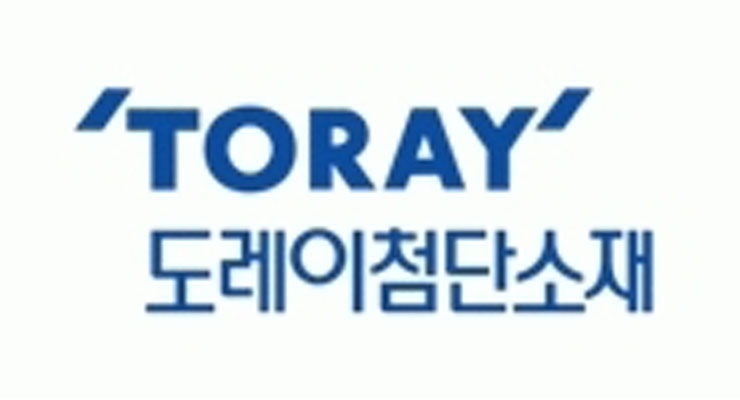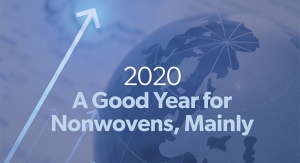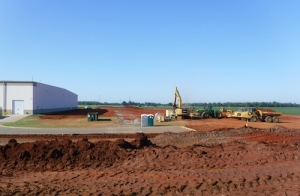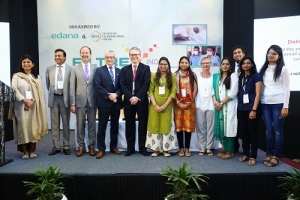09.11.17
Seoul, Korea
www.torayamk.com
2017 Nonwovens Sales: $355 million
Key Personnel
Y.K. Lee, chairman and CEO; W.C. Hwang, vice president, head of fiber division; Hitoshi Takeuchi, senior director, fiber division; W.S. Chun, senior director, fiber division; J.N. Kim, president of TPN; Y.K. Kim, president of TPJ
Plants
Korea, China, Indonesia, India
Processes
Spunbond, spunmelt, needlepunch
Asia’s largest nonwovens producer Toray Advanced Materials is continuing its Asian expansion with the addition of a new spunbond nonwovens line in Sri City, India. The new site will house a state-of-the-art polypropylene spunbond nonwovens line to meet growing demand for the materials in the Indian disposable diaper market as well as nylon and PTB resin compounding facilities. The new line, which represents a $40 million investment for Toray, is expected to be operational in 2020.
The new spunbond line will have an annual capacity of 18,000 tons and will target the growing disposable diaper market, which is benefitting from improved lifestyles changes, a high birth rate and a huge population—about 1.34 billion people live in India, the second largest country in the world by population. Major hygiene manufacturers have been aggressively expanding their businesses in India to meet current and future demand.
Toray’s compounding facilities will help it meet demand in the automobile market, which is expected to grow at a rate of 7% per year until 2025. In addition, it is believed that the requirement for Toray’s high performance materials will increase given the expanding demand for high performance auto parts and sophistication of customer demands along with the tightening of environmental restrictions in recent years.
“Asia’s hygiene market is expected to grow at an average annual rate of 8% due to China’s ‘two-child policy’ and India’s growing income,” says head of marketing Jason Lee. “In addition to the above, customer demand on quality continues to increase. On the other hand, due to excessive investment expected in Asia by nonwoven companies for the next few years, the supply volume of polypropylene spunbond is expected to exceed demand.”
With four spunbond polypropylene lines in China, two in Indonesia and one under construction in South Korea (where the company has a sizable polyester spunbond operation), Toray is among Asia’s largest nonwovens producers and the company has invested aggressively in its business in recent years.
Toray’s most recent investment, a new line in South Korea, is on track to be complete in the first half of 2018, when it will help meet increasing level of customer demands. Elsewhere, Toray completed work on a second line in Indonesia in 2016 and this line will achieve maximum production and sales capacity in the second half of 2017 covering not only its domestic market but also other parts of Southeast Asia.
Toray also operates four lines in China where it is considering additional lines to comply with the supply and demand situation which is expected to increase 13% annually by 2020.
For Toray, investment depends on the situation of supply and demand in the Asian region and the company has been considering new lines in countries like Korea, China and Indonesia depending on how quickly demand is increasing from major manufacturers which is largely being driven by increasing per capita income, which promotes the consumption of disposables products.
In the short term, Toray aims to secure the Asian supply chain and expand in various regions of Asia including China and Indonesia, starting with its planned capacity expansion projects in Korea and India. Longer term, Toray’s ultimate goal is to reach the number one position in the world, not just Asia.
www.torayamk.com
2017 Nonwovens Sales: $355 million
Key Personnel
Y.K. Lee, chairman and CEO; W.C. Hwang, vice president, head of fiber division; Hitoshi Takeuchi, senior director, fiber division; W.S. Chun, senior director, fiber division; J.N. Kim, president of TPN; Y.K. Kim, president of TPJ
Plants
Korea, China, Indonesia, India
Processes
Spunbond, spunmelt, needlepunch
Asia’s largest nonwovens producer Toray Advanced Materials is continuing its Asian expansion with the addition of a new spunbond nonwovens line in Sri City, India. The new site will house a state-of-the-art polypropylene spunbond nonwovens line to meet growing demand for the materials in the Indian disposable diaper market as well as nylon and PTB resin compounding facilities. The new line, which represents a $40 million investment for Toray, is expected to be operational in 2020.
The new spunbond line will have an annual capacity of 18,000 tons and will target the growing disposable diaper market, which is benefitting from improved lifestyles changes, a high birth rate and a huge population—about 1.34 billion people live in India, the second largest country in the world by population. Major hygiene manufacturers have been aggressively expanding their businesses in India to meet current and future demand.
Toray’s compounding facilities will help it meet demand in the automobile market, which is expected to grow at a rate of 7% per year until 2025. In addition, it is believed that the requirement for Toray’s high performance materials will increase given the expanding demand for high performance auto parts and sophistication of customer demands along with the tightening of environmental restrictions in recent years.
“Asia’s hygiene market is expected to grow at an average annual rate of 8% due to China’s ‘two-child policy’ and India’s growing income,” says head of marketing Jason Lee. “In addition to the above, customer demand on quality continues to increase. On the other hand, due to excessive investment expected in Asia by nonwoven companies for the next few years, the supply volume of polypropylene spunbond is expected to exceed demand.”
With four spunbond polypropylene lines in China, two in Indonesia and one under construction in South Korea (where the company has a sizable polyester spunbond operation), Toray is among Asia’s largest nonwovens producers and the company has invested aggressively in its business in recent years.
Toray’s most recent investment, a new line in South Korea, is on track to be complete in the first half of 2018, when it will help meet increasing level of customer demands. Elsewhere, Toray completed work on a second line in Indonesia in 2016 and this line will achieve maximum production and sales capacity in the second half of 2017 covering not only its domestic market but also other parts of Southeast Asia.
Toray also operates four lines in China where it is considering additional lines to comply with the supply and demand situation which is expected to increase 13% annually by 2020.
For Toray, investment depends on the situation of supply and demand in the Asian region and the company has been considering new lines in countries like Korea, China and Indonesia depending on how quickly demand is increasing from major manufacturers which is largely being driven by increasing per capita income, which promotes the consumption of disposables products.
In the short term, Toray aims to secure the Asian supply chain and expand in various regions of Asia including China and Indonesia, starting with its planned capacity expansion projects in Korea and India. Longer term, Toray’s ultimate goal is to reach the number one position in the world, not just Asia.












